South Korean president Yoon Suk Yeol impeached over controversial martial law decree
National Assembly voted 204-85 for the impeachment motion


South Korean president Yoon Suk Yeol was impeached on Saturday through a second vote in parliament over his short-lived attempt last week to impose martial law, a move that has thrown the nation into chaos and split his party.
The National Assembly approved the motion with a 204-85 floor vote. He was suspended from official duties at 7.24pm local time, reported the Yonhap news agency. The president said he will “never give up” and called for officials to maintain stability in government functions during what he described as a “temporary” pause in his presidency.
The Constitutional Court has up to 180 days to decide whether to remove Mr Yoon from office or reinstate him. Should he be ousted, a national election will be required within 60 days to elect his successor.
South Korea’s prime minister Han Duk Soo said he would do his best to run the government stably after the impeachment of Mr Yoon.
“My heart is very heavy,” Mr Han, who becomes acting president with Mr Yoon’s powers suspended, told reporters after parliament approved the impeachment motion.
Last Saturday, Mr Yoon narrowly survived an impeachment vote after a majority of ruling party politicians abstained. Public discontent has intensified in recent weeks, with protests growing larger and Mr Yoon’s approval ratings plummeting.
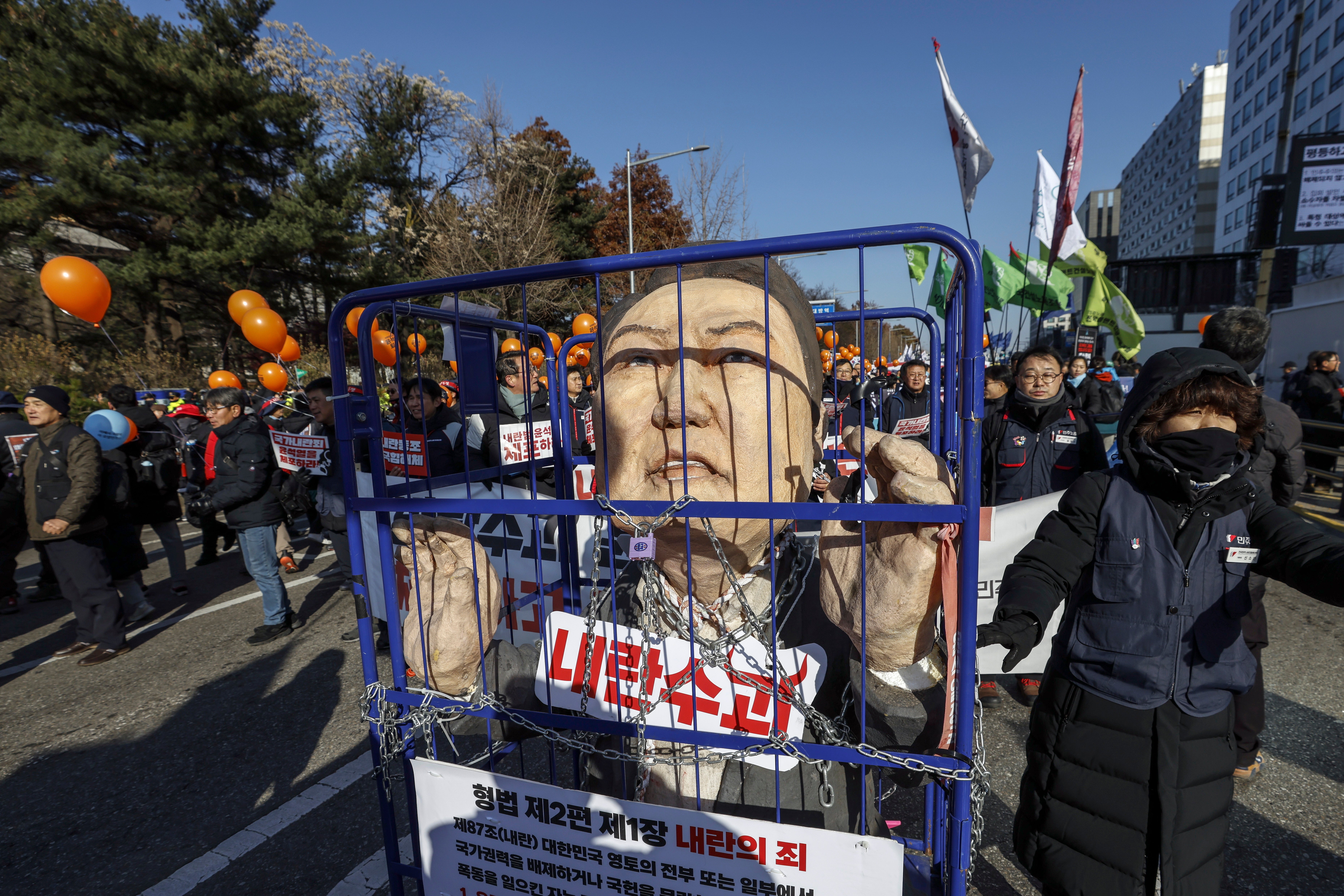
National Assembly Speaker Woo Won Shik said Mr Yoon’s impeachment was driven by “the people’s ardent desire for democracy, courage and dedication”.
Hundreds of thousands of people gathered near the parliament roared with jubilation, waved banners and brandished colourful K-pop glow sticks, as a leading activist declared on stage: “We have preserved the constitutional order.”
In a plaza in central Seoul another huge crowd gathered in support of Mr Yoon, and grew subdued after hearing the president had been impeached. Both rallies have been largely peaceful.
Mr Han promised to make every effort to ensure stability after Mr Yoon’s impeachment.
Mr Yoon is the second conservative president in a row to be impeached in South Korea. Park Geun-hye was removed from office in 2017.
“Although I am stopping for now, the journey I have walked with the people over the past two and a half years towards the future must never come to a halt. I will never give up,” Mr Yoon said.
For the past two weeks, tens of thousands of demonstrators have taken to the streets of Seoul every night, braving freezing temperatures to call for the president’s removal and arrest. Smaller counter-rallies organised by Mr Yoon’s conservative supporters have also taken place – the rallies of both sides have remained largely non-violent.
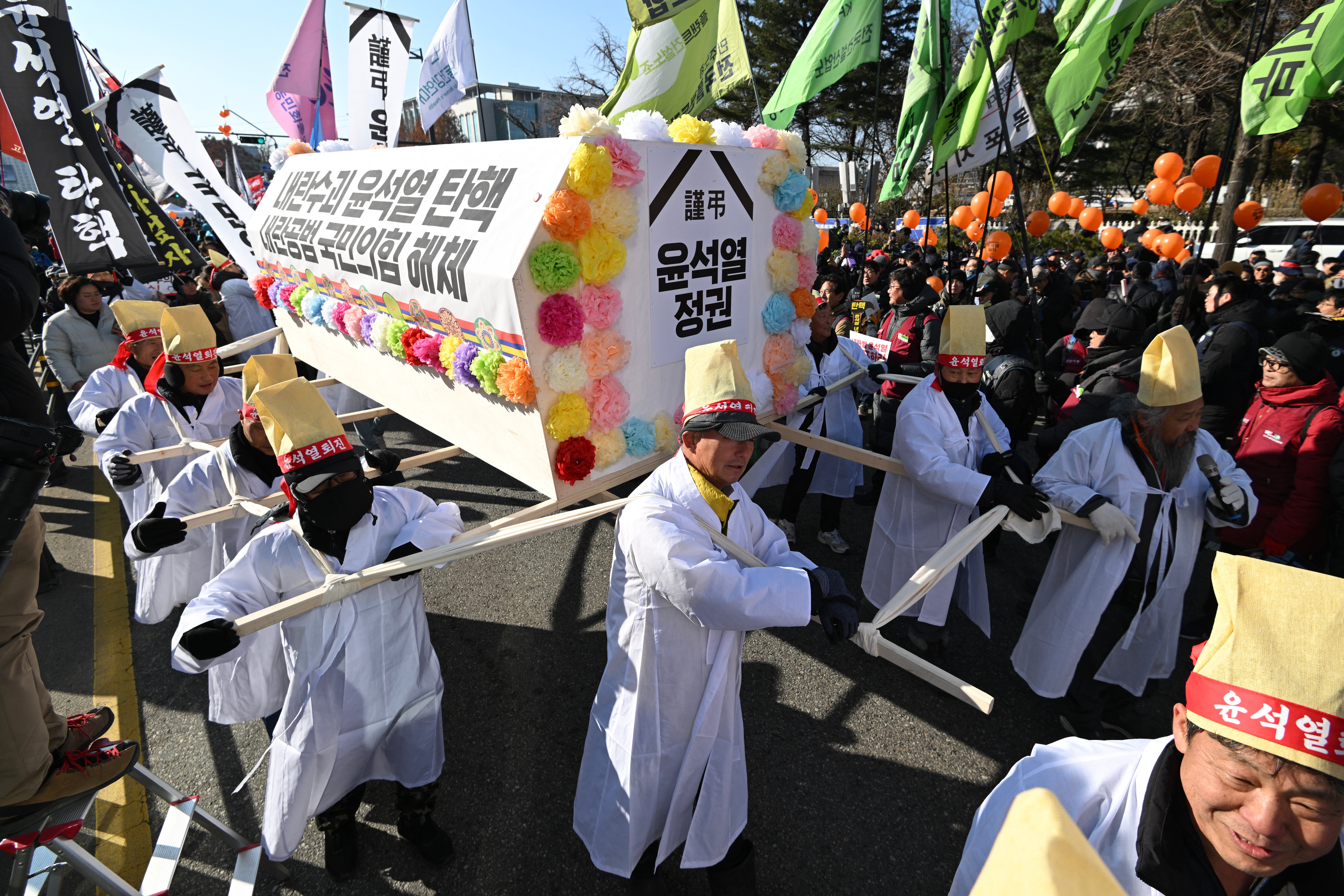
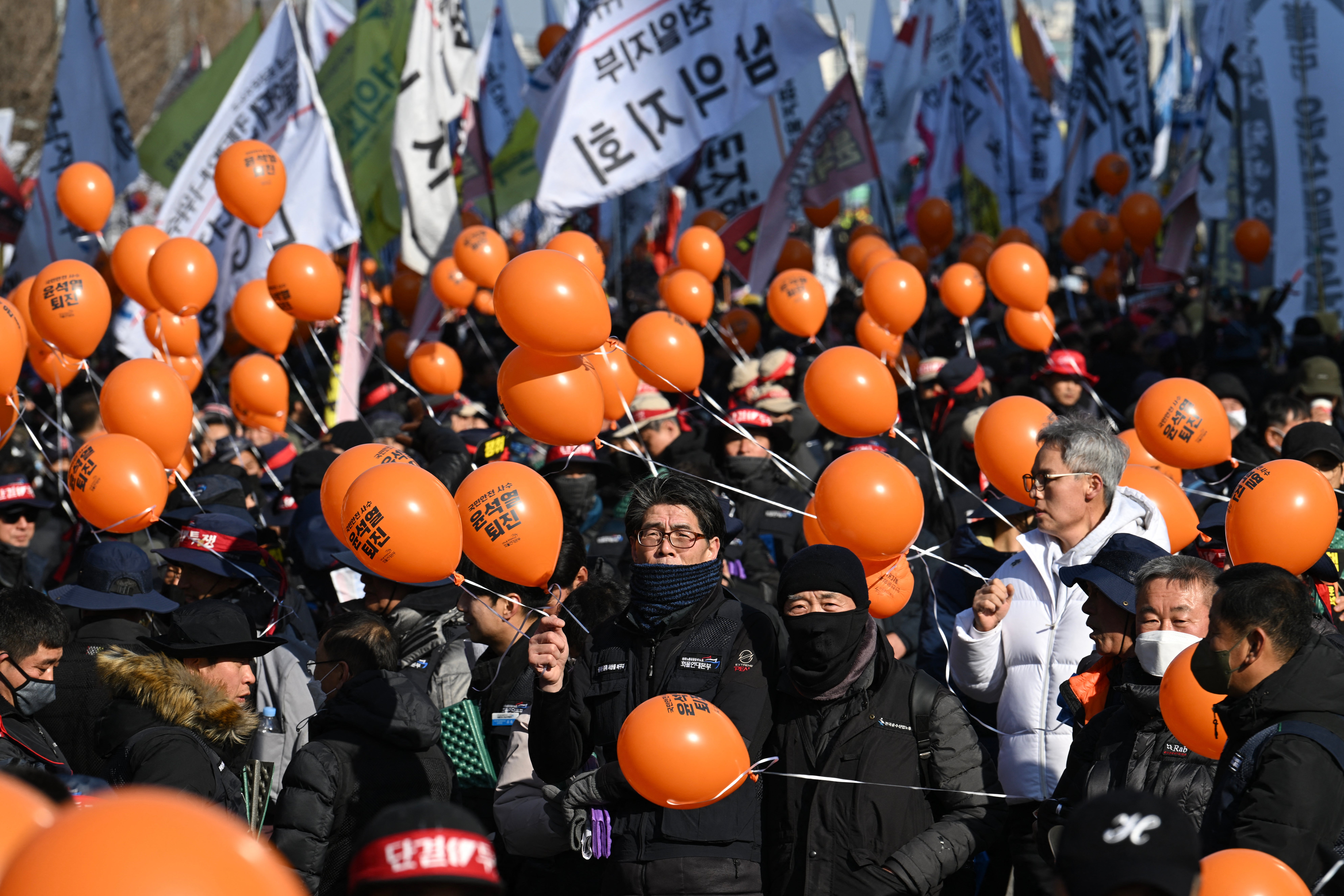
South Korea‘s foreign minister said the country’s foreign policy, which is based on its alliance with the US, would remain unchanged after the president’s impeachment.
South Korean senior diplomats met ambassadors from the US, Japan and China to explain the situation regarding Mr Yoon’s impeachment, the ministry said.
Mr Yoon’s imposition of martial law – the first instance of this in South Korea for more than four decades – lasted just six hours but triggered massive political turmoil, halted diplomatic activities and unsettled financial markets.
Following parliamentary resistance, Mr Yoon was forced to revoke the decree, and hundreds of troops and police officers were deployed to parliament in an attempt to obstruct the vote on the order. No significant violence occurred, though the political fallout has been significant.
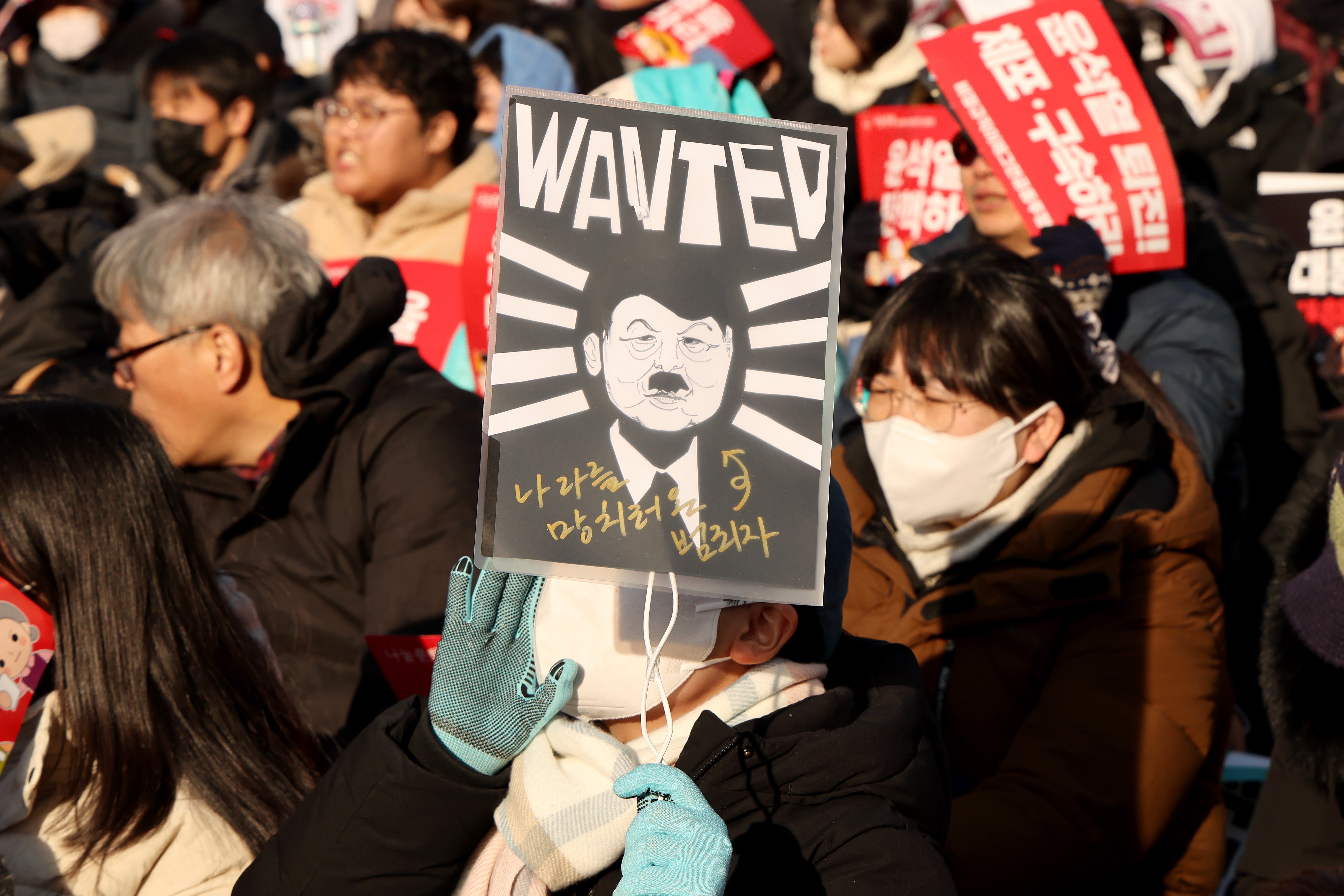
Opposition parties and legal experts have accused Mr Yoon of rebellion, citing a legal provision that defines rebellion as actions intended to undermine the constitution by staging riots against the state’s established authorities. They argue that the president was legally barred from declaring martial law except during wartime or other national emergencies, and that his actions violated the country’s constitution by attempting to suspend parliamentary functions.
The impeachment motion says Mr Yoon “committed rebellion that hurt peace in the Republic of Korea by staging a series of riots”. It accuses him of mobilising military and police forces in a manner that threatened the National Assembly and the public, with the martial law decree allegedly aimed at disturbing constitutional order.
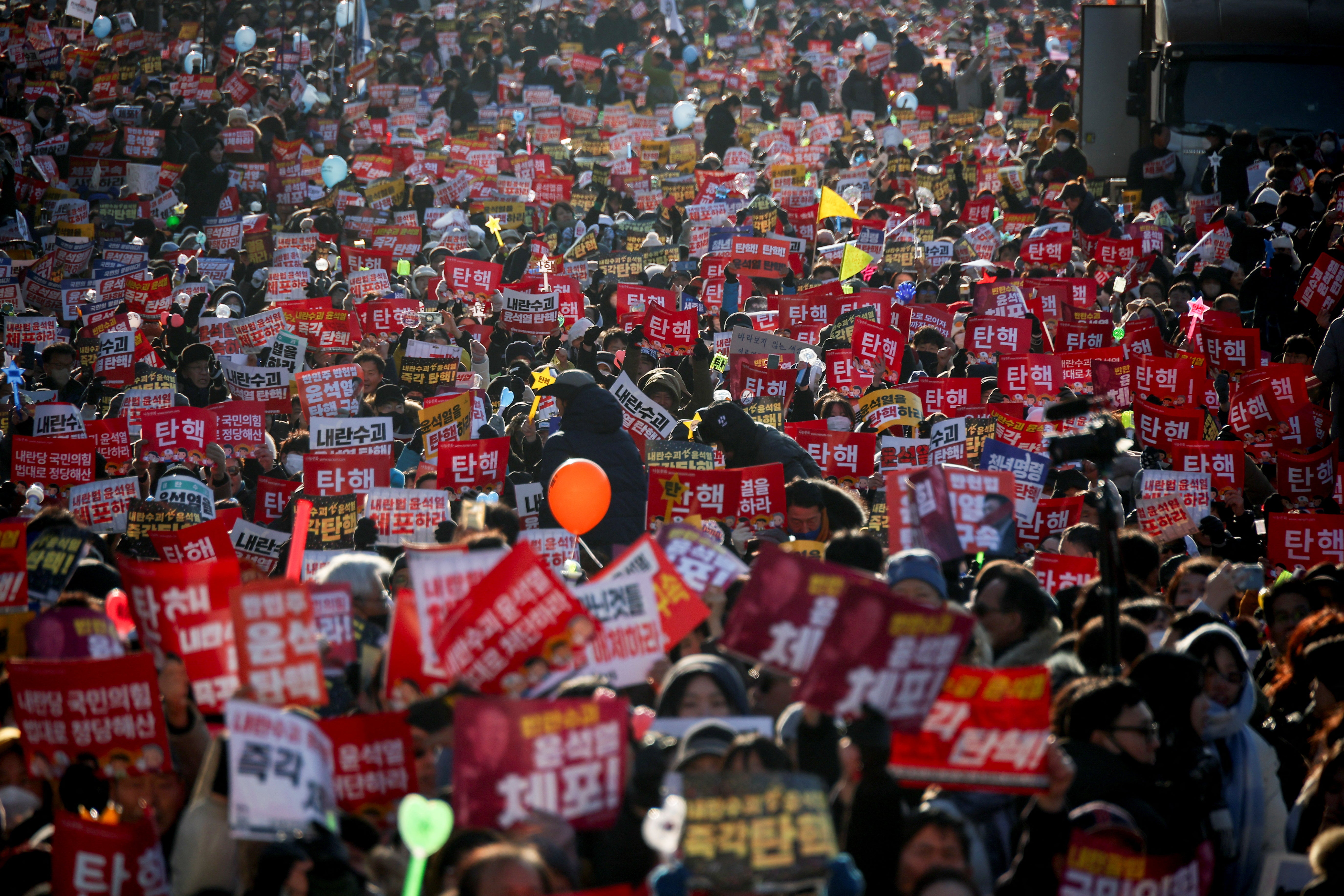
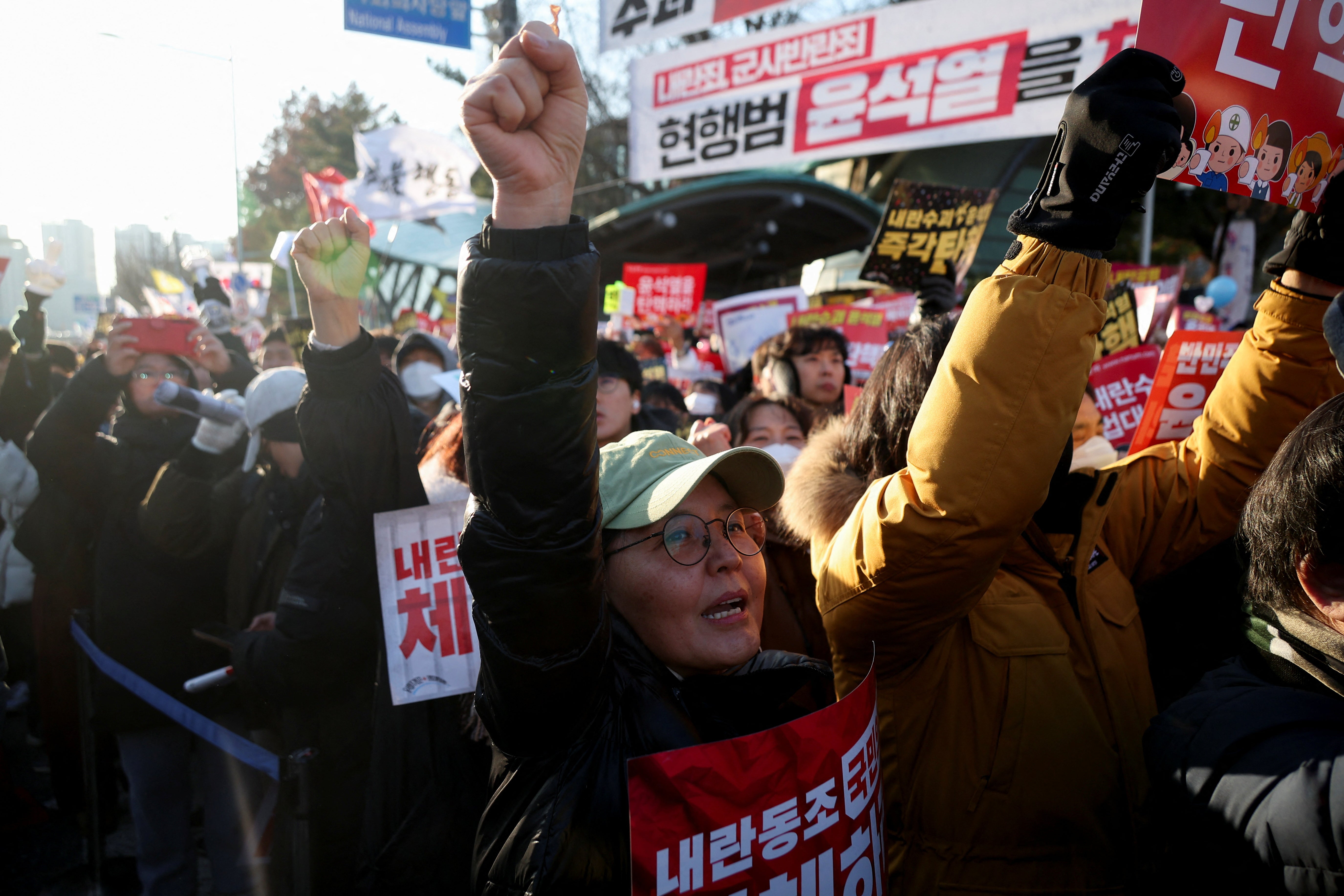
Mr Yoon remains under investigation, with law enforcement authorities looking into whether he and others involved in the martial law declaration may face charges of rebellion, abuse of power, and other criminal offences. If convicted, those found guilty of leading a rebellion in South Korea could face the death penalty or life imprisonment.
Additional reporting by agencies
Join our commenting forum
Join thought-provoking conversations, follow other Independent readers and see their replies
Comments
Bookmark popover
Removed from bookmarks